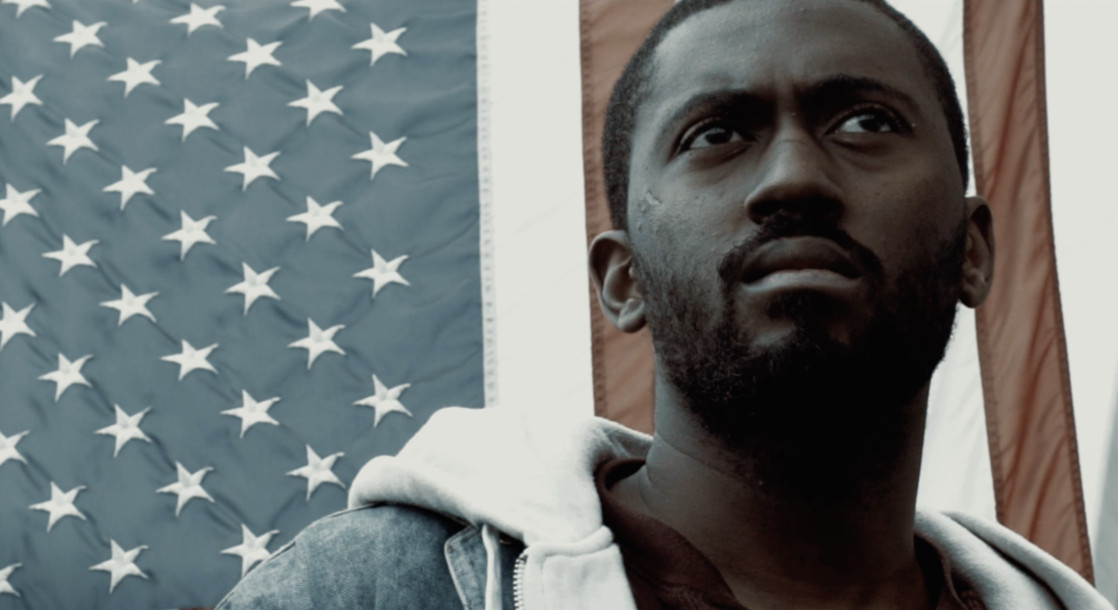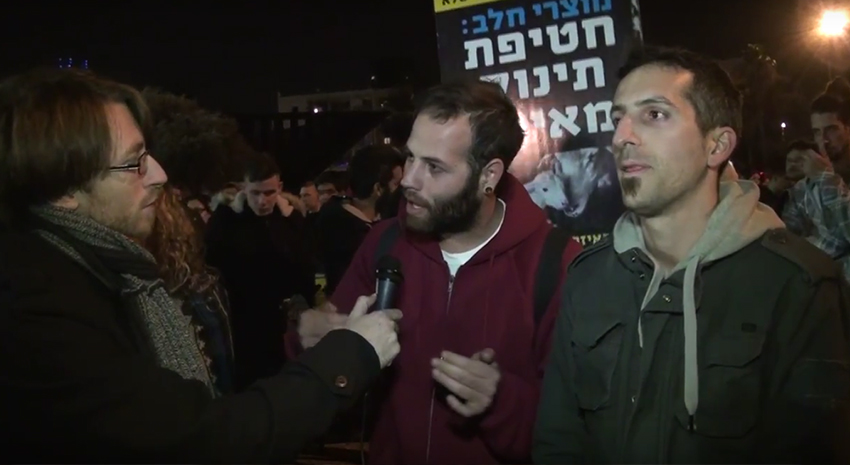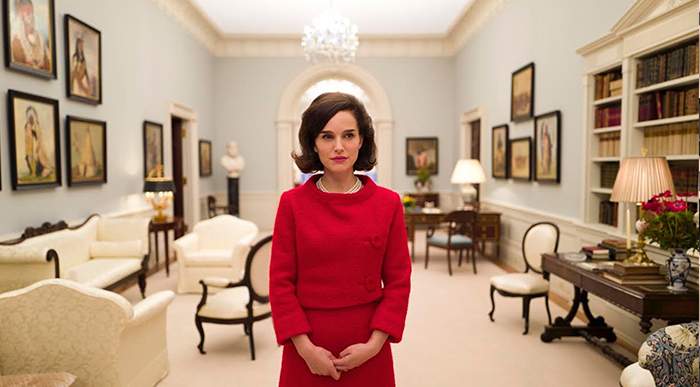All images courtesy of Korstiaan Vandiver
Who would have ever thought naysayers like the Texas Republican Party would be endorsing marijuana decriminalization? Let’s face it (if you haven’t realized already) — legal weed is here to stay. Recent news regarding President Trump’s growing departure from Jeff Sessions on cannabis legalization bodes well for our society, yet prisoners of prohibition remain almost entirely invisible during this major paradigm shift.
As we move towards federal legalization (fingers crossed), creating art that can speak for those without a voice will be crucial to wider recognition of marijuana prohibition’s racist origins and continued effects in the United States. Korstiaan Vandiver, a Los Angeles filmmaker, along with a group of his students, have turned the story of Fate Vincent Winslow, a homeless man serving life in prison for selling $20 of weed in order to buy a meal with the $5 commission, into a public service announcement for a new era — and one far more enlightened than the anti-drug productions of yesteryear. Under Louisiana’s habitual offender law, Mr. Winslow’s previous nonviolent offenses of burglary and drug possession required a minimum sentence of life in prison without parole, merely for selling two dime bags.
Vandiver led the group of student filmmakers from Los Angeles’ Koreatown Youth and Community Center (KYCC) with a mission to raise marijuana awareness through their Youth Drug Abuse Prevention Program (YDAPP). Together, they brought Fate Winslow’s tragic story to life.
MERRY JANE interviewed Vandiver to get a sense of the motivation and driving force behind the short film, entitled Fate — now available to watch in its entirety on YouTube.

This interview has been edited for length and clarity.
MERRY JANE: What was the inspiration behind producing Fate?
Korstiaan Vandiver: I was teaching film to younger students, and it was more interesting to me because these kids were in high school. They didn’t use marijuana, or so it seemed. I just know a lot of kids do, so I started looking for things that’d be interesting. I asked myself: Is anyone serving time for miniscule amounts of marijuana across the country? And how can I help turn this into a social justice project?
Lo and behold, we came across Fate Vincent Winslow. He was locked up in Shreveport, Louisiana. I’m from New Orleans so this really gets to me. The fact that he was homeless, and the fact that he sold two dime bags and was doing life ― I was like, ‘this is utterly ridiculous,’ and I wanted to know more. At first, it started as a story, but after communicating with Fate, it became more of a [mission to] ‘Let’s get this guy out of jail’.
A lot of the fear — as well as YDAPP’s mission — around cannabis is about keeping marijuana out of the hands of youth. How was it explaining marijuana to such young people?
They were talking about weed all the time. In general, the students were between 15-18 years old. They would speak on it from various standpoints. It’s something that’s happening in their world, whether it was family, friends, the neighborhood, the music you listen to. It’s everywhere. KYCC administrators were open to the idea because it was a unique perspective of potential negative outcomes of being associated with marijuana.
If anything, what the project did was give them a different perspective on somebody’s situation surrounding marijuana, especially the idea that someone’s freedom could be taken away just like that. We thoroughly discussed irony of other states with legal cannabis. So the discussion became: Why if marijuana is legal in certain states, is anyone in prison? It caused some initial cognitive dissonance and head scratches, but ended with more well-rounded worldviews.
How long did it take to produce and film?
It was October 2016 when we first reached out to Fate. KYCC hired me as a film mentor; they had a budget of under $10,000, and reimbursed me for rented film gear, cast, and crew stipends. Still, we had to raise more money because films are very expensive no matter how small. We barely had enough to get through finishing the film.
There was a huge learning curve, because I had to teach the students how to film. We wrote the screenplay and did various drafts from November to mid-December. Initially, we started casting in January, but had to push the film date back because we had to wait for paperwork for our SAG (Screen Actors Guild) actor, Robert Hunter, who played Fate.

Actors Robert Hunter and Ryan Mulkay in 'Fate'
I originally saw Robert acting in my friend Steven Caple Jr.’s Sundance breakout film The Land. I reached out to Robert just to show my respect for his work. I shared some of my films, and we hit it off. We agreed to collaborate on a film in the future, and when Fate came into the picture, he was all in. He traveled from Cleveland to California, and we ended up shooting for three days in March. We shot in Arcadia, which was the most southern-looking place in California we could find, as well as the [University of Southern California] library and cafeteria for the interiors of the prison.
How did you go about reaching out to Fate?
It was interesting because when we first tried to contact Fate, we had to speak with one of the assistant wardens at Louisiana State Penitentiary. This assistant warden basically told me that he would not allow me to speak to Fate. He basically said he didn’t want to show favor to Fate because he was no different than other prisoners. Finally, he started screaming at me, because I quoted the basic rights of the law.
From there, I found all of Fate’s former lawyers. They were also very unhelpful and didn’t care. One of the lawyers felt like Fate deserved what he got because he sold drugs. For me, it was like if you want to say he’s guilty, then let’s be real about the sentencing. What people don’t realize about the law is if you get caught with two dime bags, you can be hit with a felony intent to distribute because it’s separated.
I eventually got into contact with a lawyer named Brittany Barnett out of Texas, who worked under the Obama administration to obtain clemency for nonviolent drug offenders. We were trying to see if we could get Fate free before Obama left office, but the timeline was really close.
Brittany advised me to write Fate, and she would do a wellness check via phone call. He eventually wrote back, and said he would love for us to tell his story, especially if he can help other young people not make the same mistakes. We wrote back and forth, and became friends over the course of the year. Fate sent [more] info after we shot; the letter [system] was a bit too slow. We ultimately used his court documents, legal statements, and articles to create the story.
Fate unfortunately has not been able to see the film, but he was still very excited. He actually granted me the rights afterward to create a feature film on his life; we have already spoken to some very influential people in Hollywood who are interested in his story. I told him that it was something that I would never stop doing. I don’t know how long it will take me, but I will really dedicate a part of my life to helping him get free and telling his story. That was my promise to him.
For the time being, we haven't entered any more festivals but we did submit for a Player's Network Cannabis Media Grant. It's centered towards more positive messages around cannabis, but we know confronting the bitter truth of Fate's story is something that needs to be dealt with.
***
Korstiaan Vandiver and the youth of KYCC successfully started a petition for the release of Fate Vincent Winslow, which currently has 11,000 signatures — you can add yours here. Korstiaan Vandiver can be contacted at @Korstiaan1 on Instagram, and you can watch the entire short film Fate below:











